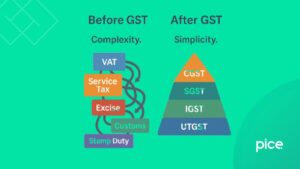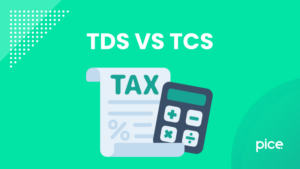GST for Landscaping in India
- 18 Jul 25
- 6 mins
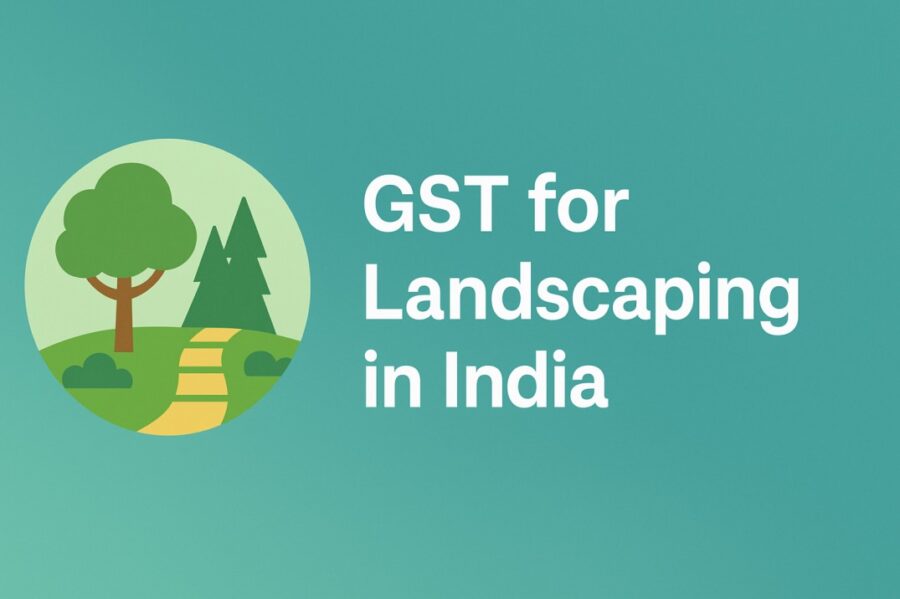
GST for Landscaping in India
Key Takeaways
- Landscaping businesses must register under GST if their turnover exceeds ₹20–₹40 lakhs, depending on the state.
- GST is exempt if goods supplied in a landscaping contract do not exceed 25% of the total contract value, as per Entry 3A of Notification 12/2017.
- The GST registration process involves online application, document submission, verification, and issuance of a unique GSTIN.
- Registering under GST offers benefits like Input Tax Credit (ITC), enhanced business credibility, and access to larger clientele.
- Unregistered businesses risk penalties and may miss out on partnering with GST-compliant corporate and government clients.
While offering a landscaping service or a supply of plant, it is crucial to understand the specifics of tax obligations for both business success and compliance. One such obligation for contractors is the GST registration, which is compulsory for operating a related service-providing company in India.
However, through an official declaration published in June 2017, the Government confirmed that a business does not need to pay GST for landscaping services if the amount of goods supplied by them does not exceed 25% of their contract value.
This proposition was first put forward by the Karnataka Authority of Advance Ruling (AAR) and now can be seen under Entry No. 3A of Notification No. 12/2017 of the CGST Act.
To get related information about GST registration for lawn care services, continue reading.
Prescribed Threshold Limit for Registration Under GST for Landscaping
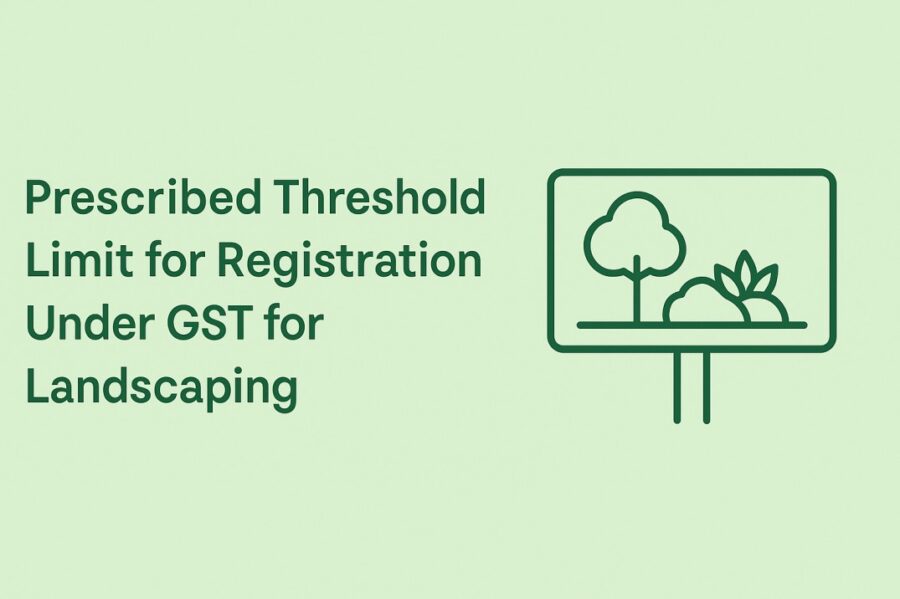
In India, the limit for online or offline GST registration depends on the yearly turnover of services. At present, the threshold limit is ₹40 Lakhs for composite supply businesses operating in most states. For enterprises operating in a few other states, the threshold limit is ₹20 Lakhs. However, you must strive to stay updated with the latest guidelines to ensure spot-on GST compliance.
Stepwise Instructions to Complete GST Registration for Landscaping Businesses
Here is a quick guide that someone associated with plant industry can follow to get their landscaping business up and running:
Step 1: Gather the Necessary Documents
For a successful GST registration, plant retailers must start by collecting the mandatory documents. This includes your identity proof, PAN card, address proof document, proof of business registration, and so on.
Once you ensure that these documents are easily available, the next steps can be executed smoothly. Moreover, you can get in touch with GST professionals to learn in detail about documentation requirements.
Step 2: Proceed With the Online Registration Process
The Government of India offers an official website for the GST registration procedure. So, you can simply visit the portal and sign in with your personal details. Next, you must provide a few details about your business, like its nature of services (in this case, landscaping), annual turnover, contact details, etc., before uploading the required documents.
Step 3: Complete Verification and Documentation
After applying, you will get an application reference number and an acknowledgement receipt.
While reviewing your registration application, the GST authorities may request additional insights to facilitate the verification procedure. You need to quickly provide the supporting documents to eliminate unnecessary delays in online plant sales.
Step 4: Get a GSTIN Allotted
After your application has been processed successfully, you will be allotted a unique GSTIN. This code is vital for all your upcoming tax filings and transactions in future. Therefore, it is essential to keep your GSTIN handy and readily accessible.
Why Should You Consider Registering Your Landscaping Business Under GST?
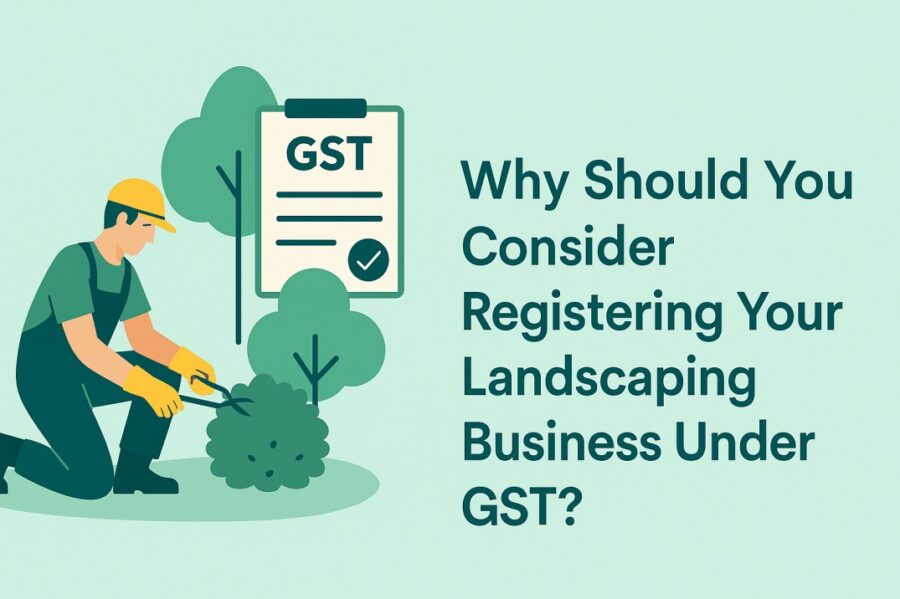
There are many proven benefits of registering a lawn care service business under GST. Some of them are:
● Availability of Input Tax Credit Against Paid Interest Rates on Plants
GST registration allows you to claim ITC for taxes settled against your business raw materials, like equipment, machinery, fertilisers, etc.
● Accurate Compliance and Legitimacy
Registration under GST sets your landscaping enterprise as a legitimate business compliance with the country’s taxation rules. It increases your credibility and builds strong trust among the business partners and clients.
● Ease to Expand Customer Base
Many companies, mostly large corporate agencies, prefer to work exclusively with GST-registered suppliers and vendors of medicinal plants. Therefore, as someone related to plant businesses, you can broaden your clientele base for landscaping services by getting your firm officially registered with the Government.
● Penalty Avoidance
Not complying with tax liability regulations can lead to mismatches in record-keeping, which in turn may result in legal consequences and penalties. Hence, you can safeguard your business from unwanted complications by completing the GST registration and maintaining clean transaction records.
Conclusion
GST registration is compulsory for plant supply chain contractors who deal with landscape development and plant cultivation work for government undertakings. One can easily follow the procedure for the application of GST for landscaping upon visiting the unified portal.
If you have doubts after reading this comprehensive guide, you can get in touch with GST experts online. The experts will guide you throughout the process to ensure your task is taken care of in a minimum turnaround time.
💡If you want to streamline your invoices and make payments via credit or debit card or UPI, consider using the PICE App. Explore the PICE App today and take your business to new heights.
 By
By 







